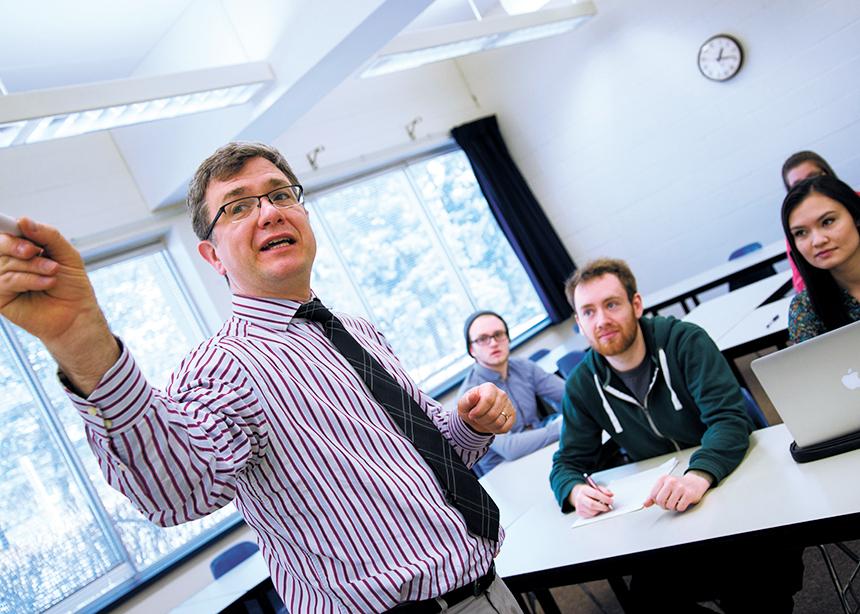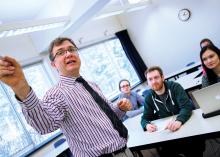At Conrad Grebel University College, students engage the arts in two ways.
Those enrolled in academic programs immerse themselves in questions central to the human experience: how to compose a moving work of music, how to understand the Bible in the 21st century or how to effect peaceful social change. As they learn their discipline, arts students acquire skills in analysis and communication that are valued in the work place.
Graduates go on to work in a variety of careers that may or not be directly related to their field of study. Others pursue further education in graduate school.
Students who study the arts become well-rounded graduates who can communicate intelligently and persuasively, skills which employers find desirable in university graduates.
In addition to Grebel’s majors, classes and music ensembles are open to students in other disciplines across the University of Waterloo, including students in science, technology, engineering and math (STEM) fields.
Taking courses in other fields exposes students to new ways of thinking, analyzing and asking questions. When STEM students and arts students share a classroom together, they stretch each other to consider what it means to be human from a new angle. The arts provide a way to move beyond what is pragmatic or possible towards engaging the complex moral and aesthetic questions that lay at the heart of life today.
When students ask questions about the impact of artificial intelligence on society in a peace and conflict studies course, or what speech can be tolerated on a social media platform in an ethics course, they are working at questions that lie at the intersection of arts and STEM fields.
“When I started school five years ago, there was no such thing as PeaceTech,” says Angela Krone, a fourth-year nanotechnology engineering student at the University Waterloo. “Now, people understand the importance of combining social impact with emerging and existing technology. It’s exciting to be a part of conversations that will help define the field!”
At Grebel, the conversations and questions begun in the classroom are often carried back into the dining room and residence. In addition to late-night conversations, Grebel provides opportunities for students from a variety of disciplines to engage in traditional arts activities like chapel choir, peace society, Bible studies, sports or dance.
“Living and learning with students from a diverse range of academic programs gives an invaluable breadth of knowledge and understanding,” says Jonathan Shantz, a third-year arts and business student at UWaterloo. “Conversations between friends in programs like engineering, kinesiology, physics or economics enables collaboration in a way that’s nearly impossible if you stay within your own area of study.”
In a world dominated by technology and science, the arts remind us to ask what it means to be human, to appreciate beauty and to seek wisdom alongside technological innovation.
Troy Osborne is Grebel’s dean and associate professor of history.




Add new comment
Canadian Mennonite invites comments and encourages constructive discussion about our content. Actual full names (first and last) are required. Comments are moderated and may be edited. They will not appear online until approved and will be posted during business hours. Some comments may be reproduced in print.